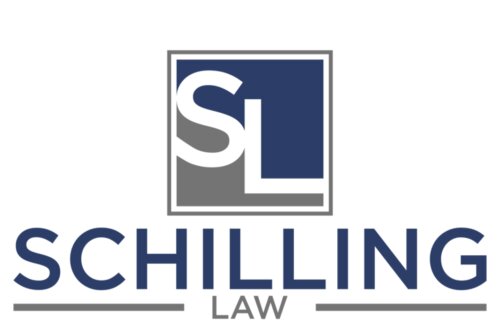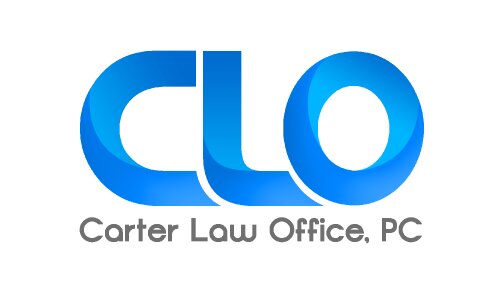Best Brokerage Lawyers in Kansas
Share your needs with us, get contacted by law firms.
Free. Takes 2 min.
Free Guide to Hiring a Real Estate Lawyer
Or refine your search by selecting a city:
List of the best lawyers in Kansas, United States
About Brokerage Law in Kansas, United States
Brokerage law in Kansas governs the activities and relationships between brokers, their clients, and third parties within transactions involving real estate, securities, investments, and certain types of goods and services. Brokers act as intermediaries, helping clients buy, sell, or lease property or assets, or facilitate financial investments. Kansas law outlines licensing requirements, professional conduct standards, ethical obligations, and penalties for misconduct by brokers. Whether operating as an individual or through a brokerage firm, all brokers performing business within the state must comply with specific regulations tailored to their industry, such as real estate or securities.
Why You May Need a Lawyer
There are several situations where individuals or businesses in Kansas may benefit from legal assistance regarding brokerage matters:
- Entering into a contract with or through a broker
- Disputes over commissions or broker fees
- Allegations of broker misconduct, fraud, or breach of fiduciary duty
- Concerns about disclosure of material facts in real estate or securities transactions
- Issues involving licensing, renewals, or regulatory compliance
- Legal consequences of unlicensed brokerage activity
- Buying or selling complex investments where broker behavior is critical
- Litigation arising out of failed transactions or misrepresentations by brokers
A lawyer with experience in brokerage law can help interpret contracts, provide representation in disputes, and ensure compliance with all applicable Kansas regulations.
Local Laws Overview
Kansas brokerage law is shaped by a combination of state statutes, administrative regulations, and court decisions. Some of the key aspects include:
- Real Estate Brokers: The Kansas Real Estate Brokers’ and Salespersons’ License Act requires all real estate brokers and salespersons to be properly licensed through the Kansas Real Estate Commission. There are strict rules regarding disclosure, advertising, escrow funds, and recordkeeping.
- Securities Brokers: The Kansas Uniform Securities Act regulates broker-dealers and investment advisers. Registration with the Kansas Office of the Securities Commissioner is a must. Rules address ethical conduct, suitability obligations, and antifraud provisions.
- Brokerage Contracts: Any agreement involving brokerage relationships must meet state requirements regarding disclosures, signatures, and terms.
- Fiduciary Duties: Kansas law holds brokers to high standards of fiduciary responsibility, requiring honesty, loyalty, and full disclosure to clients.
- Enforcement and Penalties: Violating Kansas brokerage laws may result in civil disciplinary action, monetary penalties, suspension or revocation of licenses, or even criminal charges in cases of fraud.
Frequently Asked Questions
What is a broker and what do they do in Kansas?
A broker is an individual or business licensed to act as an intermediary between parties in transactions involving property, securities, or financial investments. Brokers must comply with Kansas laws specific to their field and are required to act in their clients' best interests.
Do I need a license to act as a broker in Kansas?
Yes. Most brokerage activities, including real estate and securities brokerage, require a state-issued license. The requirements vary by the type of brokerage and may include testing, background checks, and ongoing education.
Can I handle my own brokerage transactions without a broker?
In many cases, individuals can handle their own transactions, especially with personal property or investments. However, certain transactions, such as real estate sales to third parties, often require the involvement of a licensed broker.
What obligations do brokers owe to their clients in Kansas?
Brokers owe fiduciary duties to their clients, including honesty, loyalty, full disclosure, confidentiality, and the duty to act in the client’s best financial interests.
What happens if a broker violates Kansas law?
Violations can result in disciplinary action, license suspension or revocation, fines, and potentially civil or criminal penalties, depending on the severity of the infraction.
Are brokerage fees regulated in Kansas?
Brokerage fees are usually negotiable but must be clearly disclosed in any contract. Real estate broker fees, for example, are agreed upon by the parties, not fixed by law.
What is the difference between a broker and an agent?
A broker is licensed to oversee transactions and may employ agents. Agents are licensed to represent brokers in transactions but must work under a broker's supervision.
How can I file a complaint against a broker in Kansas?
Complaints can be filed with the appropriate regulatory body, such as the Kansas Real Estate Commission or the Office of the Securities Commissioner, depending on the nature of the brokerage.
What disclosures are brokers required to make?
Brokers must disclose material facts that could influence a client's decision, potential conflicts of interest, and all fees and commissions. In real estate, this can include property defects; in securities, potential investment risks.
Do Kansas laws protect me against broker fraud?
Yes. Kansas law provides civil remedies and criminal penalties for fraud or misrepresentation by brokers. Victims may sue for damages and can report violations to state enforcement agencies.
Additional Resources
If you are seeking more information or need to file a report, the following resources can be helpful:
- Kansas Real Estate Commission: Oversees real estate brokers and salespersons licensing and discipline
- Kansas Office of the Securities Commissioner: Regulates securities brokers and investment firms
- Kansas Bar Association: Can help you find a qualified attorney experienced in brokerage law
- Local consumer protection offices: Provide guidance and assistance in cases of suspected fraud
Next Steps
If you require legal assistance in a brokerage matter in Kansas, start by gathering all relevant documents, such as contracts, correspondence, and evidence of transactions. Research and contact an attorney with expertise in brokerage law or the specific field, such as real estate or securities. If urgent, consider reaching out directly to the state regulatory agency for guidance on immediate concerns. Seeking legal counsel before signing agreements or engaging in brokerage transactions can protect your interests and help you understand your rights and obligations under Kansas law.
Lawzana helps you find the best lawyers and law firms in Kansas through a curated and pre-screened list of qualified legal professionals. Our platform offers rankings and detailed profiles of attorneys and law firms, allowing you to compare based on practice areas, including Brokerage, experience, and client feedback.
Each profile includes a description of the firm's areas of practice, client reviews, team members and partners, year of establishment, spoken languages, office locations, contact information, social media presence, and any published articles or resources. Most firms on our platform speak English and are experienced in both local and international legal matters.
Get a quote from top-rated law firms in Kansas, United States — quickly, securely, and without unnecessary hassle.
Disclaimer:
The information provided on this page is for general informational purposes only and does not constitute legal advice. While we strive to ensure the accuracy and relevance of the content, legal information may change over time, and interpretations of the law can vary. You should always consult with a qualified legal professional for advice specific to your situation.
We disclaim all liability for actions taken or not taken based on the content of this page. If you believe any information is incorrect or outdated, please contact us, and we will review and update it where appropriate.
Browse brokerage law firms by city in Kansas
Refine your search by selecting a city.









